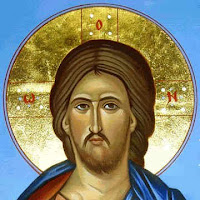Rev. Phil Ashey: Introduction to "Communion Governance"
An introduction to "Communion Governance: The Role and Future of the Historic Episcopate and the Anglican Communion Covenant"
March 2, 2010
By the Rev. Phil Ashey,
Chief Operating and Development Officer, American Anglican Council
The American Anglican Council is pleased to release "Communion Governance: The Role and Future of the Historic Episcopate and the Anglican Communion Covenant," by the Rev. Dr. Stephen Noll, Vice-Chancellor of Uganda Christian University. His essay is characterized by meticulous research into the history of Communion Governance, the history of the role of bishops meeting in council together at Lambeth and through the Primates' Meetings, the history of other Instruments of governance (such as the Anglican Consultative Council), and the relative merits of three different models of governance: pure autonomy, executive bureaucracy (with an enhanced role for the See of Canterbury), and the conciliar authority of bishops. Noll reaches the following conclusions with regard to the Anglican Communion Covenant:
The conclusion of this essay is that the one matter of principle that cannot be abandoned without abandoning our particular catholic and Anglican heritage is the responsibility of the ordained and bishops in council in particular, to rule and adjudicate matters of Communion doctrine and discipline.
If this is true, then the Lambeth Conference and the Primates' Meeting (with the Archbishop of Canterbury presiding as primus inter pares) must be seen as the primary organs to deal with articulation of the faith, as happened at Lambeth 1998, and with breaches of the faith, as has not happened since then.
There must be only one track: those who adopt the Covenant are members of the Communion; those who do not adopt it are not. Bp. Mouneer Anis is right: when a sufficient number of Provinces have adopted the Covenant, the ACC and its Standing Committee should stand down and be constituted solely from Covenant-keeping Provinces. (pp. 48-49)
the rest


0 Comments:
Post a Comment
<< Home